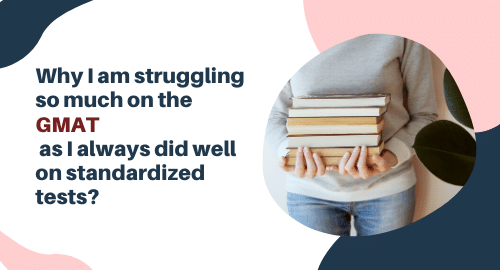GMAT is a wonderful exam that tests your critical reading, writing, and reasoning skills acquired till date. Critical skills are a crystal clear thought process regarding the concepts and their application. For majority of the candidates who have been brilliant academic performers or in fact valedictorian’s, GMAT proves to be an eye-opener with the only emphasis on critical skills being tested throughout the test. Many are not able to digest the fact considering their vivid past as to why did they perform so badly on the test? The reason can be attributed to the way the academics or in fact many standardized tests ascertain your skills.
To understand this deeply, we need to go to the way the brain works. Our brain can be divided into two halves or hemispheres: left brain, right brain. Both the sides of the brain look very much alike, but there’s a huge contrast in how they process information. The left brain is more verbal, analytical, and orderly than the right brain. It’s sometimes called the digital brain. It’s better at things like reading, writing, and computations. The right brain is more visual and intuitive. It’s sometimes referred to as the analog brain. It has a more creative and less organized way of thinking. Our education system has been designed to test the left side of the brain much more than the right side. People who use the left brain more are excellent in following a procedure, specific set of rules and this is the reason you have been a great academic performer. However, when it comes to the GMAT, you might be able to solve the majority of GMAT questions using standard techniques, but that simply takes too much time, which you simply can’t compromise on the GMAT. In fact most questions on the GMAT have much shorter insight-based solution. This is where GMAT requires you to use your right brain equally effectively. The GMAT draws on both sides of the brain to be an exceptional performer.
Majority of the standardized tests ask straight forward questions wherein you can apply a formula and get to the answer. Similarly, in verbal sections they focus a lot on your vocabulary. If you know the meaning of the word, you can answer the question straight away otherwise the amount of time does not make a difference. Also, the top performers efficiently perform the two pass strategy on various standardized tests to get a great score by attempting the easy or your strength area questions first, and keeping the harder ones or which target your weak areas towards the end. This approach lets you maximize your score as you attempt all the questions which are your strengths and leave rest of the questions to be attempted later on. This approach goes for a toss with GMAT being a computer-adaptive test. So, you will not have the option to skip any question, return to any previously attempted question, and edit any answer. This makes GMAT, a hard pill to swallow for many test takers. The proprietary GMAC algorithm starts each of these sections with a mean level question (552 is considered a mean score in GMAT). As you keep on answering the questions correctly, the next question the algorithm throws at you is of a bit higher level. This process of chronological increase in difficulty of questions keeps on going till the point, you answer a question wrong. Once a question in answered incorrectly, the algorithm throws a question of lesser difficulty. The GMAT test adapts itself in real-time to your actual ability level, hence the name computer adaptive. The GMAT score obtained helps the business schools assess your potential with a higher degree of precision, as the GMAT score is trusted widely across the globe.
Contrary to the popular notion of playing on strengths, scoring well on GMAT specifically requires a thorough analysis of identifying your weak areas and converting them into your strengths. This is the single most factor that marks the difference among the candidates who see a great jump in their scores on the final GMAT exam. To identify your weakness you should work with a great GMAT tutor who has years of experience behind his back teaching students of varying aptitude levels. Your tutor can use his or her expertise and prove to be a great sailor in helping you pass the GMAT with flying colors.
GMAT punishes people whose Quant strategy relies heavily on the use of formulas. Though necessary to know the concept or the formula, GMAT actually tests you on application of the same. GMAT never asks even a single straight forward question. For example, you might be very good in knowing the meaning of tough English words in isolation, but if you are not able to use them in the sentences (real-life communication), it will land you nowhere on the GMAT.
If you are determined about performing better on the GMAT, you need to be honest with yourself (easier said than done) about the level you currently stand and your weak areas. You need to gauge yourself and then prepare on three indispensable segments of the GMAT prep: Content Knowledge, Test Strategy, and Time Management. All these three are mandatorily required in equal proportions to improve your score on the GMAT. However, test strategies and time management comes into play once you have a sound content knowledge. Later, both the other strategies can be honed and applied to exceed your expectations on the GMAT.
GMAT is an exam in which no one strategy fits all. The strategy to rise up the ladder for every individual is unique. Acing the GMAT can be compared to “Enlightenment”. One might have all the necessary ingredients (Content Knowledge, Test Strategy, and Time Management) in place but still, the end result (great GMAT score) is not achievable. What is actually required is to fine-tune all the three ingredients to the correct frequency simultaneously. It may sound impossible but can be accomplished under the guidance of an expert GMAT tutor.
We at GMAT gladiator have been pioneers in providing world-class online as well as one-on-one classes for the GMAT exam. It gives us great contentment to see our students realize their aspirations and potential through our guidance. We have catered to almost all parts of the globe as far as our students are concerned. Our students have got admitted to the most prestigious schools a child aspires to study. We have years of experience behind our back, which only increases our drive and confidence with each passing year to provide the best education for the GMAT exam. We have always believed that success is 1% inspiration and 99% perspiration. Since every person is unique, we at GMAT Gladiator also believe that every person has the potential though it just needs to be identified, nurtured, and polished. Each individual has unique strengths and weaknesses. The most important thing for a tutor or guide is to identify the gaps a candidate has and to work upon them slowly and steadily because both the gaps and the grasping power of each child is different, which cannot be identified in group classes. This is by far the most important thing required for a GMAT prep and that’s the reason we don’t do group classes, as we want to be sincere to our profession and one approach does not fits all. For us, money is not the only criterion, but imparting and imbibing valuable education to each person is our prime focus.
Our point of view – GMAT can be aced, but that surely requires the guidance of top GMAT instructors, which can effectively make a difference in your GMAT prep.



